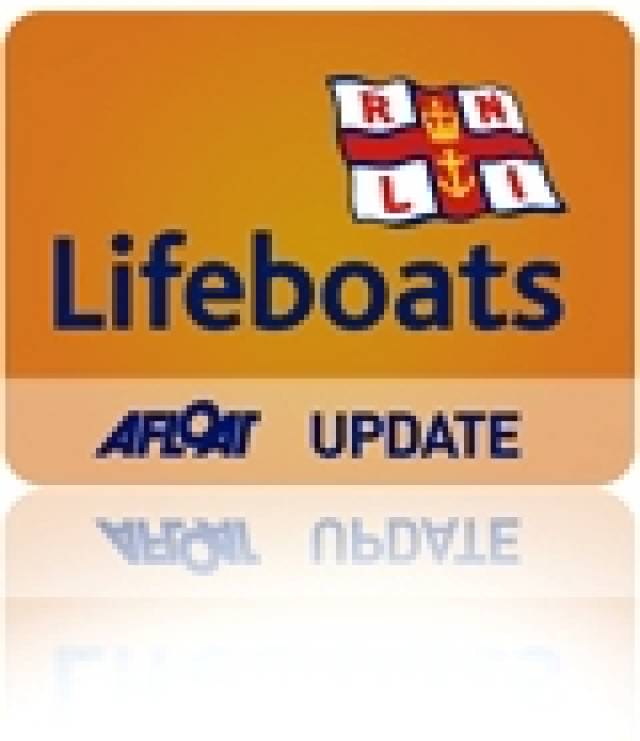#portrush – Tim Nelson's interest in all things connected with the RNLI has paid dividends in relation to the return of a silver gallantry medal presented to a local man for saving the life of a boy in Portrush in 1891.
Tim a keen collector and married to the Station's Press Officer, Judy Nelson was searching the web for images of RNLI issued medals as he had seen an unnamed RNLI bronze medal on eBay and was trying to work out if it was a modern copy or an original. As part of his on-going research Tim discovered a silver medal on the Internet awarded by the RNLI for bravery. As he read the accompanying history and the description of the medal he was surprised to find that the rescue that the medal had been awarded for had occurred in Portrush Harbour in 1891.
Tim said
'Obviously having an interest and connection with the Lifeboat Station in Portrush, I was very excited by the find. I contacted Robin Cardwell Lifeboat Operations manager to tell him and contacted the seller to express interest in the medal.'
Robin was keen to learn more and between himself, Tim, Des Austin, Coxswain, arrangements were made to purchase the medal to return it to its home Station in Portrush.
The medal was awarded by The Royal National Lifeboat Institution to: John Boyd Seaman who was not a crew member but a seaman living in Portrush. The full citation reads:
On 8 May 1891, while going out to his smack (small boat) which was at anchor in Portrush Harbour, a boy was thrown into the sea after his boat ran into another vessel's wake. John Boyd saw this from his position on another boat some 100 yards away. Despite being encumbered with his coat and sea boots, John Boyd jumped into the water and swam to the boy, as did fisherman David Patton, who, though twice as far away on shore, ran to the quay, threw off his coat, jumped in the sea and went to his aid. Boyd and Patton both supported the boy until a boat came from shore to further assist them. The RNLI voted John Boyd and David Patton its silver medal and accompanying vellum testimonial on 14 May 1891 The award was reported in various papers including the Belfast News-Letter, Saturday 16 May 1891).
John Boyd's medal has had quite a journey before returning to the home station. It formed part of the Watters Collection, sold at Glendinnings between 9-12 June 1913; it was subsequently part of the American Numismatic Society collection until 2006 and was sold for the ANS by Morton & Eden Auctioneers, 26 October 2006.
The medal was purchased by a collector Dr Roger Willoughby, who has a keen interest in lifesaving medals and is planning to write a book about Lifesaving Medals issued in Ireland. Dr Willoughby would be delighted to hear from anyone with any information that could assist him with his research. He can be contacted via email at [email protected]
Robin Cardwell Lifeboat Operations Manager commented:-
'We are delighted to have this medal back in Portrush were it first started out. It has had quite a journey around the world and we are so pleased that Tim found it and was able to assist in its return.'
The medal was purchased from crew funds and donations made by Willie Gregg as part of his on-going fundraising initiatives for Portrush Station and Willie's Orphan Fund
The medal will form part of the Stations history exhibition and can be seen on station open days.































































